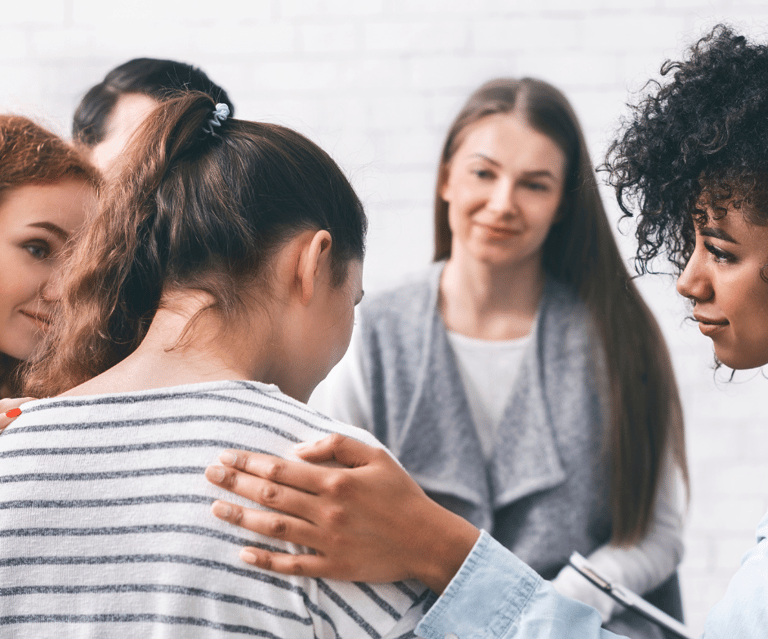
The Benefits of Group Therapy in Eating Disorder Treatment
Discover how group therapy can support eating disorder recovery by offering connection, accountability, and real-world tools. Learn the benefits, types, and how it complements individual therapy.


Group therapy can be a powerful addition to individual therapy in eating disorder recovery. While individual therapy focuses on your unique challenges and goals, group therapy provides something equally valuable: connection. It creates a sense of community where you can share your experiences, learn from others, and feel supported in a way only a group setting can offer. Together, these approaches can be the perfect boost to help you on your recovery journey.
Why Group Therapy Works
Group therapy is about listening, sharing, and learning from others navigating similar paths. Here’s how it can help:
Support That Feels Genuine – Recovery can feel isolating, but group therapy reminds you that you’re not alone. Being with people who truly “get it” helps you feel understood and supported in ways that friends or family might not always provide.
Learning from Shared Experiences – Every group member brings their own story, challenges, and successes. Hearing how others cope with similar struggles can spark ideas and give you practical strategies to try in your recovery.
Improved Communication Skills – Sharing your thoughts and listening to others in a safe, structured space helps build confidence in expressing yourself. This can carry over into your relationships, helping you reconnect with loved ones.
Accountability and Motivation – Group therapy creates a built-in support system. Regular meetings and shared goals encourage you to stay committed, while seeing others’ progress can inspire you to keep going, even on tough days.
A Space to Process Emotions – Talking about feelings isn’t always easy, but group therapy offers a judgment-free zone. Whether it’s frustration, fear, or hope, sharing emotions with others who understand can be incredibly healing.
Types of Group Therapy for Eating Disorders
Group therapy isn’t one-size-fits-all. The right type of group depends on your needs and where you are in your recovery. Common types include:
Educational Groups: These focus on learning about eating disorders, nutrition, and healthy coping skills.
Therapeutic Groups: Often rooted in approaches like Cognitive Behavioral Therapy (CBT), these groups help you reframe negative thoughts and behaviors.
Peer Support Groups: These provide a space to share experiences and offer encouragement, creating a sense of community and belonging.
Things to Consider When Choosing a Group
Finding the right group is essential. Look for one led by trained professionals who specialize in eating disorders. A good group will feel safe, welcoming, and aligned with your recovery goals. Don’t be discouraged if the first group you try doesn’t feel like the right fit—it’s okay to explore different options until you find one that works for you.
Complementing Individual Therapy
Group therapy doesn’t replace individual treatment; instead, it complements it. While one-on-one sessions tackle your challenges, group therapy offers additional support, connection, and real-world tools. Together, they create a more holistic approach to recovery.
Final Thoughts
Group therapy is a unique and valuable part of eating disorder treatment. It’s a chance to connect, learn, and grow in a supportive environment. If you’re feeling isolated or looking for an extra layer of support in your recovery, group therapy might be what you need.
Don’t hesitate to reach out if you’d like to explore group therapy options or need help finding the right fit. I’m here to help you find the resources and connections that will best support your recovery journey.


